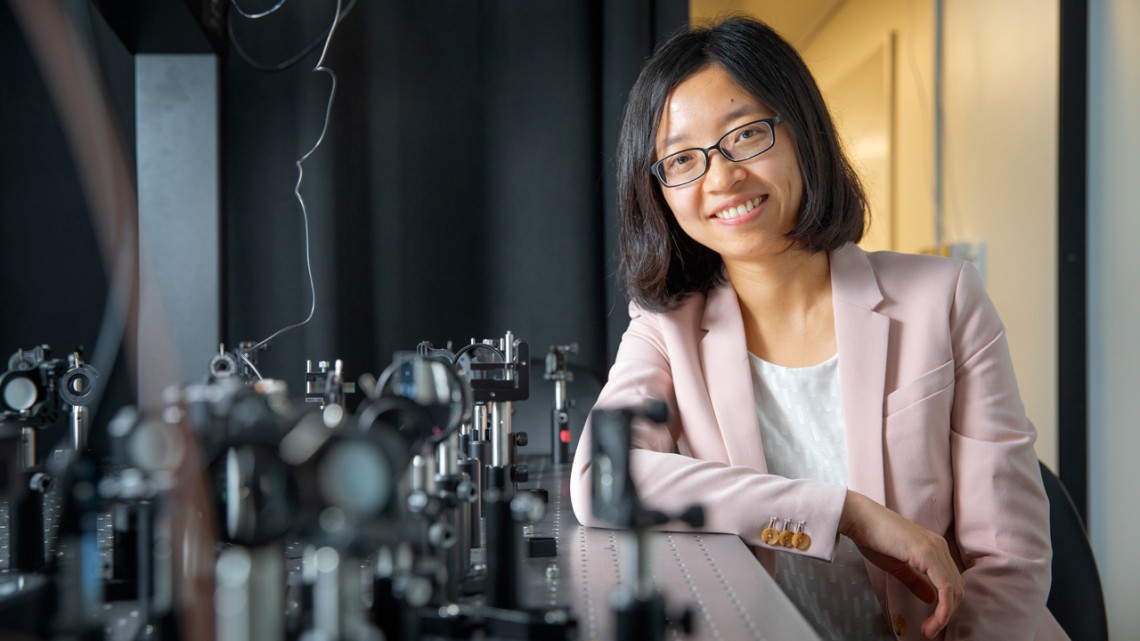Alumni Spotlight: Zhiting Tian, MS ’09
From earning her MS at the Watson School to teaching at Cornell

Zhiting Tian, an assistant professor of mechanical and aerospace engineering at Cornell University, started her academic career with a bachelor’s of engineering physics degree at Tsinghua University in China. But when she decided to pursue her master’s degree in mechanical engineering, she looked to Binghamton University and the Thomas J. Watson School of Engineering and Applied Science.
After graduating from Binghamton in 2009, Tian went on to earn a PhD in mechanical engineering at the Massachusetts Institute of Technology in 2014.
Tian’s research at Cornell includes the discovery of a crystalline material with ultralow thermal conductivity that can turn heat into electricity, which could lead to new energy conversion materials and devices.
Why did you choose Binghamton University?
I was trying to switch my major when I applied for graduate schools. My MS advisor at Binghamton University, Professor Ying Sun, made me an offer to do an MS in mechanical engineering. It was the perfect option for me to test out this new field. I ended up loving the research I did at Binghamton University, and I pursued my PhD at MIT in the same area.
What were some of the key lessons that you learned at the Watson School that still resonate with you today?
Work hard, but family is always most important.
What are some of your favorite memories of studying at the Watson School?
I very much enjoyed my time at Binghamton University, where I made many lifelong friends and also met my husband, Yan. We have been bringing our kids back to visit the campus quite a few times since we moved to Ithaca in 2018. Every time, we are so excited — the unique feeling of coming back home.
Any particularly influential professors or mentors?
Several professors influenced me profoundly: Professor Sun (my MS advisor, now at Drexel University), Professor Bruce White, Professor Bruce Murray, Professor Timothy Singler and Professor D.C. Sun (now retired).
What are some important ways that we can encourage more women to pursue STEM careers?
First, we should deliver a clear message that girls and boys are equal. When I was a kid, my parents bought me a book that featured famous female scientists like Marie Curie and kept telling me that girls can achieve everything that boys could, if not more.
Second, we should make every effort to increase diversity at each opportunity along the path to STEM careers, from K-12 activities to college admission. The more women role models in STEM careers we have, the more women students we could encourage.
What is it like now that you are passing on lessons to the next generation of engineers? Is being a professor something you always saw in your career, or did you end up there through another route?
I became an assistant professor right after I got my PhD. I took this career path, primarily influenced by a senior female faculty, and substantially supported by my PhD advisor at MIT and my husband. I am passionate about what I am doing. It keeps me busy but very happy. I love being connected with bright young minds and helping them grow to the very best they desire to be.
